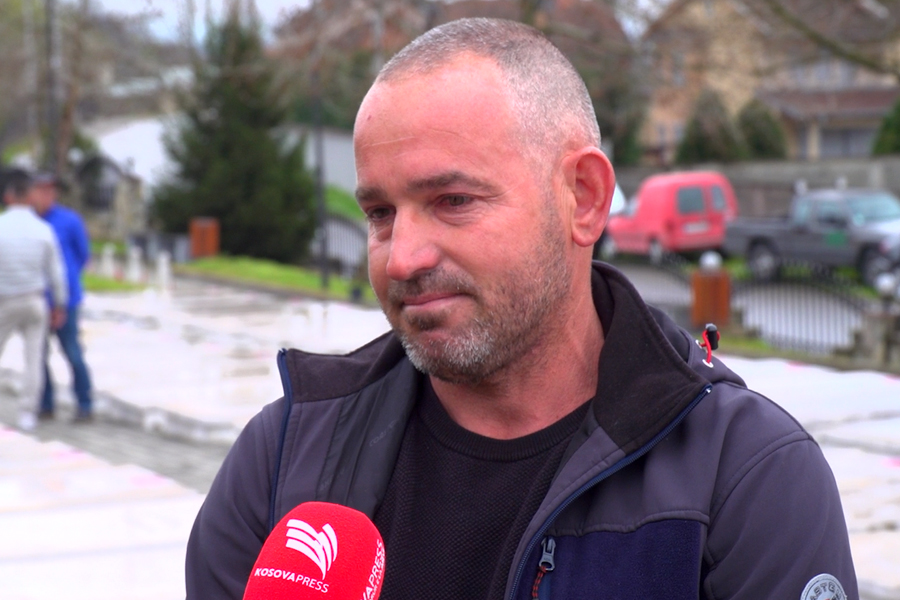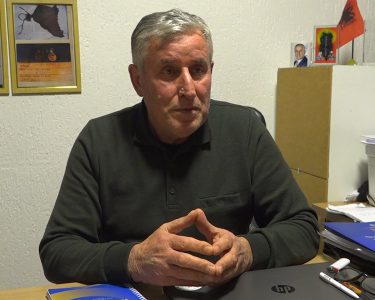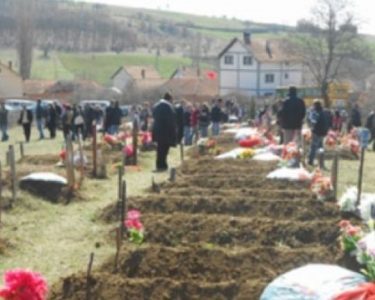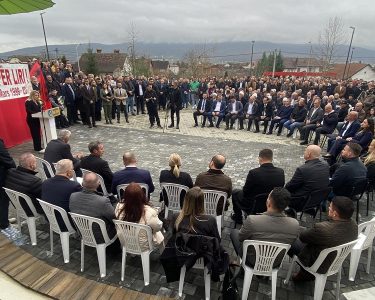Although there is no hope that he is alive, Arben Nalli from Great Krusha still waiting for the day when he will receive news about the fate of his missing father. He has been waiting for 26 years.
On March 25, 26, and 27, 1999, in Krusha of Rahovec, 243 people were massacred by Serbian forces, and 893 private and public houses were burned.
Krusha turned into a center of pain and tragedy. Innocent Albanians, including men and children, were killed and massacred by Serbian police forces.
As a result of this massacre, 60 people remain missing, including Gani Nalli.
While the remains of Gani Nalli’s three brothers rest in the cemeteries of Great Krusha, Arben Nalli, now 44 years old, recalls seeing his father for the last time when he was about the same age.
“This date will remain in history for the rest of my life, as long as I am alive. When the Serbian forces entered the village, we were at home until around 3:30 AM. At 3:30, our father told us—there were six younger males in the house—to go into the mountains and leave the house. From that moment, we never saw him again. He is missing. Meanwhile, the bodies of my father’s three brothers, my uncles, are buried. We are two branches of the same family, and 13 of us have been killed. I remember my father as if it were today; he was my age now. I remember him as a wise man, a man of knowledge, and a great humanist in the village. The memories are very fresh, just like 26 years ago. Hope never dies, but I don’t believe he will be found. The government is not working to reveal the fate of the missing, especially those from Krusha, 64 of whom are still missing,” he says.
Nalli becomes emotional as he expresses, through tears, his wish that his father could at least see his grandchildren.
He mentions that his son, who carries his father’s name, often asks him about the massacre.
“I don’t know what I would say to him, except that I wish he could see his grandchildren. Today, my son carries his name. He is proud, but he often asks, especially around each anniversary, how they were taken, where they ended up, why they are not found. He asks me these questions more now. I have never told him that he is dead. He still believes that one day his grandfather will return. I have told him that he went with his friends. I don’t think he is alive, but at least the remains, I want to place a flower, just like my father’s three brothers. My father was the oldest brother of my uncles; there were six of them, four older brothers were killed, and two survived,” says Nalli.
Fiqirie Zylfiu from Little Krusha also tells how her son lost his father when he was only nine weeks old, following the massacre in Little Krusha 26 years ago.
She says that during the massacre in March 1999, her husband, father-in-law, and brother-in-law were killed.
On the 26th anniversary of this massacre, she says that every day it becomes more painful and difficult for her.
“My husband, father-in-law, and brother-in-law were killed in the Little Krusha massacre. Every day seems to be more painful than the last. My son was very young, just nine weeks old, when they killed my husband. Now he is grown and married. It’s just a very difficult day for us. My husband and father-in-law have been found, but my brother-in-law is still missing. I can’t speak. I had a son who was only nine weeks old when my husband was killed. Now, he has grown up. For me, it’s been very hard. These were young men whose lives were taken. I can’t say more,” says Zylfiu.
The fate of Arben Nalli’s father and the family members of Fiqirie Zylfiu, as well as many other men from Krusha, mirrors the tragic story of tens of others who, on March 25, 26, and 27, 1999, suffered a genocidal crime by Serbian forces in the region.
Today, Krusha welcomed people from various places, including representatives from institutions, who honoured the martyrs and heroes who fell 26 years ago. /Z. Zeneli







